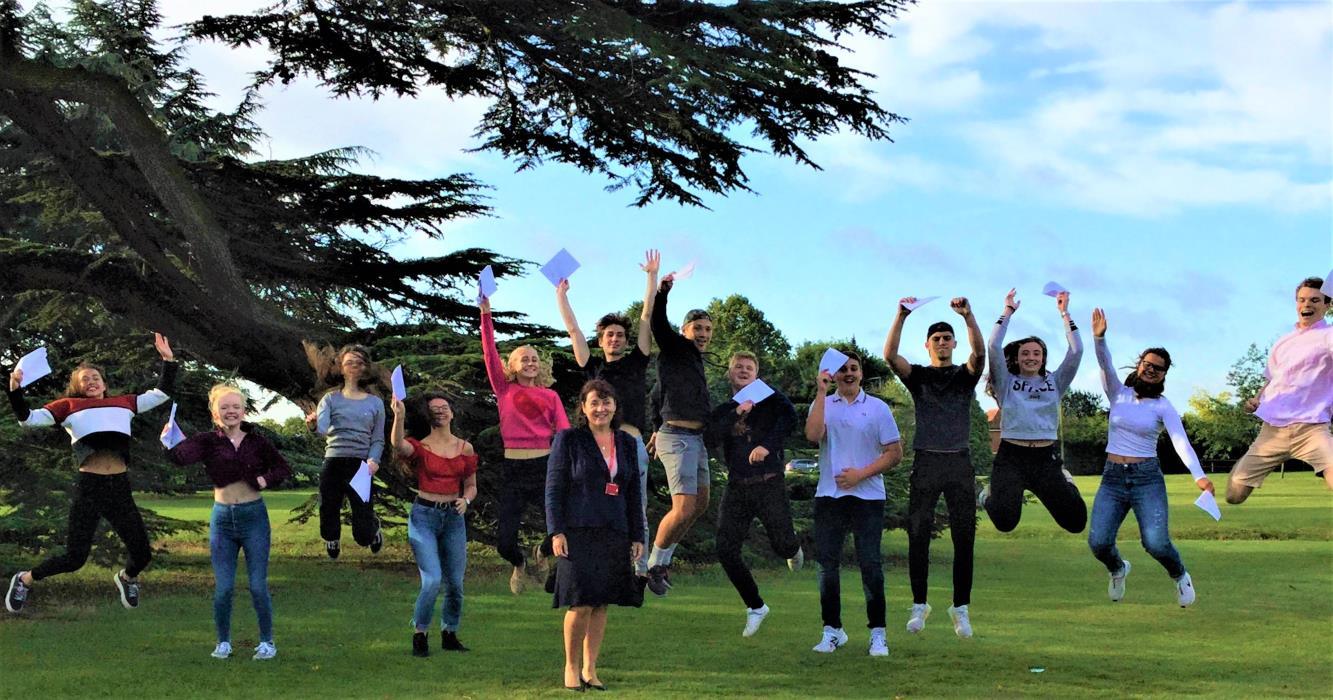
4 minute read
OFFERS
All applications submitted by 15 January 2022 will be considered by British universities (although we strongly recommend that you submit your application in good time before that, if this is possible, which is reflected in our internal deadlines). There is a late March application deadline for receipt at UCAS of applications for Art and Design courses, except those listed with a 15 January deadline.
UCAS will acknowledge your application and will ask you to check that it has interpreted your application correctly. Your acknowledgement will include your application number as well as your password to enable you to log into the UCAS Track system to follow the progress of your application. It is advisable to keep a careful note of your application number and quote it if and when you need to contact UCAS.
Decisions
Decisions will then come from the universities in random order (most will have decided by the end of March in Year 13). These decisions, or offers, should start to arrive a few weeks after you apply (which in some cases can be as early as November) and are communicated to you via UCAS Track.
If you have a long wait, it possibly means that you are a borderline candidate, but don’t read too much into it. Some popular universities give late offers as do many medical schools. Others have a policy of waiting until after the final deadline (15 January) to process all applications at once.
Before they make final decisions, they may invite you to interview or they may offer you a place and invite you to an Open Day/Applicant Day.
You will receive one of three decisions: • U = unconditional offer (these are relatively rare, but more recently seem to be being offered). You are in! No further qualifications are required, although it is very much in your interest to continue working towards achieving your predicted grades.
• C = conditional offer
Still some work to do! If you accept the offer (say BBB or AAB) and you achieve the grades, then you are in.
• R = rejection
Sorry – no place.
Replies
You have to reply to any offer you receive, but not until you have all your decisions. This is all completed on-line.
e.g. you may get an offer of BBB or 120 points.
You may, however, receive a more specific offer e.g. BCC, but the B must be in Geography.
Accept or decline?
Many students get three, four, even five offers but you should not necessarily expect to receive an offer from every choice; this is increasingly rare due to the increased competition for places in recent years. However, many offers you receive, you must reduce these down to two. We advise students not to decide hastily, but take the time they need to research a little more, visit the site and/or see how their work progresses up to the deadline, which is typically early in May. You may find yourself in the situation below where you have four offers:
You now need to make one firm and one insurance offer and decline the rest.
Firm Acceptance
If you firmly accept an offer this means that it is your first preference. You can accept only once, you will not be able to change or cancel your reply.
Insurance Acceptance
You may also hold one additional offer as an insurance acceptance. In almost all cases, your insurance offer should be lower than your firm offer, to allow for missed grades in August.
Decline
If you decline an offer, you are indicating that you definitely do not wish to accept it. Be quite sure before you decide.
Before you make your final decisions you should discuss your decision with your tutor and/or one of the Sixth Form management team. Typically, most students will decide upon which two courses will be accepted sometime in April, but they should check the condition of offers from UCAS.
What do universities look for when they give offers?
• Intellectually able applicants. • Motivated applicants. • Competitive applicants. • Applicants who are likely to accept. • Applicants who are likely to make a valuable contribution. • Applicants who are likely to get the grades.
This is very rare, but it does happen. You must inform your Tutor immediately. Indeed we advise that you regularly keep your tutor up to date with the progress of your applications. Currently we can view your progress, however the information we receive for the cohort of students is updated only once a month.
1. You can apply for ‘UCAS Extra’, which means you can re-apply for other courses or universities and your deadline is the end of June. This is done one university at a time.
UCAS will publish listings of courses that will still consider applicants. You should discuss this with your Head of Year. 2. You can ‘go through clearing’. This system operates once results have been released in
August. There is still a chance that you can get into your chosen course, if places are still available. On Results Day in August all students who do not quite get the required grades for their chosen courses, are given guidance and support through this process. 3. You can re-take some of your examinations and re-apply the following year. 4. You can apply for an alternative course. 5. You may decide to take a Gap Year and re-apply. 6. You may decide to go into employment and delay going to university. 7. You may decide to apply for Apprenticeships
Remember – all is not lost if you get no offers. Much can be done before (through ‘UCAS Extra’ or through Clearing) to secure you a place at university, if that is really what you want.









